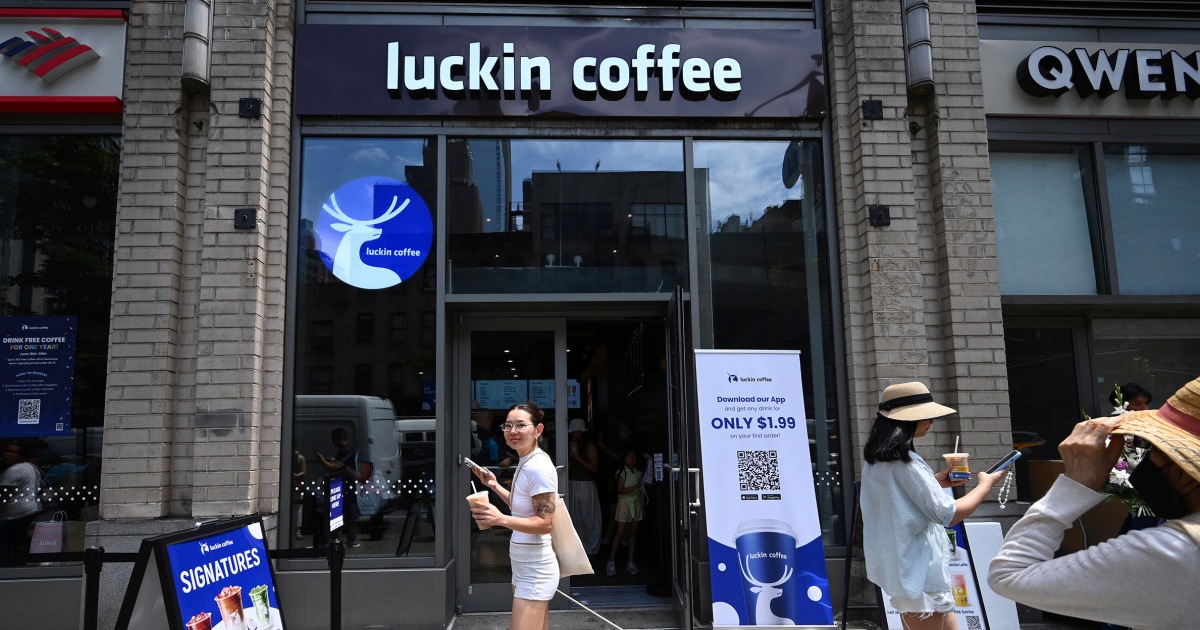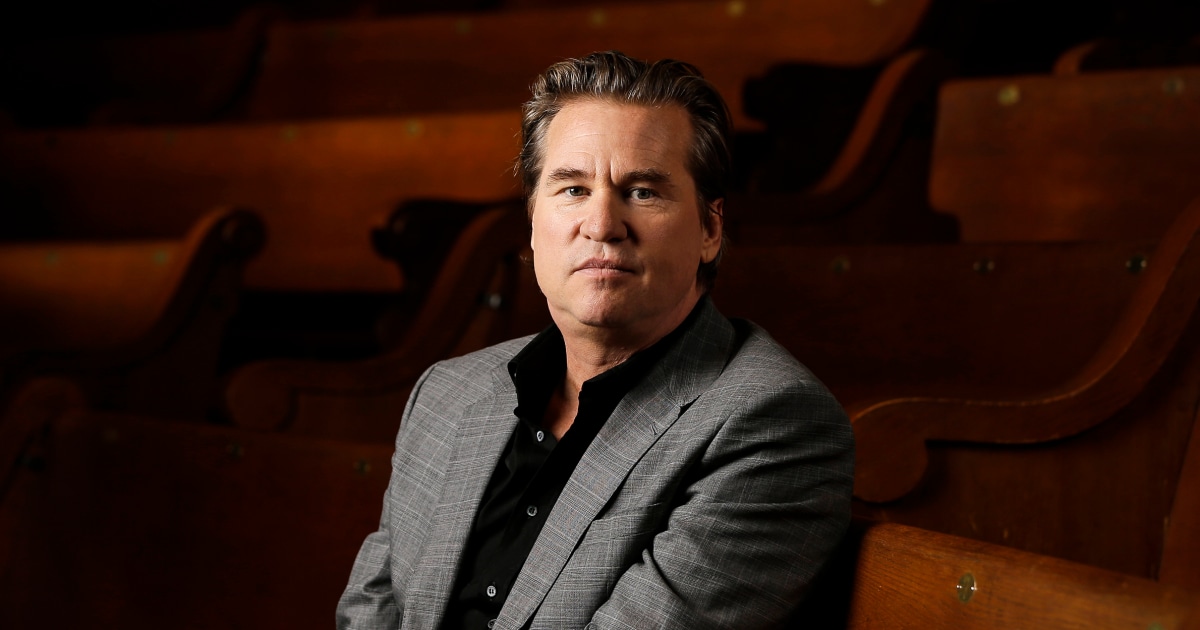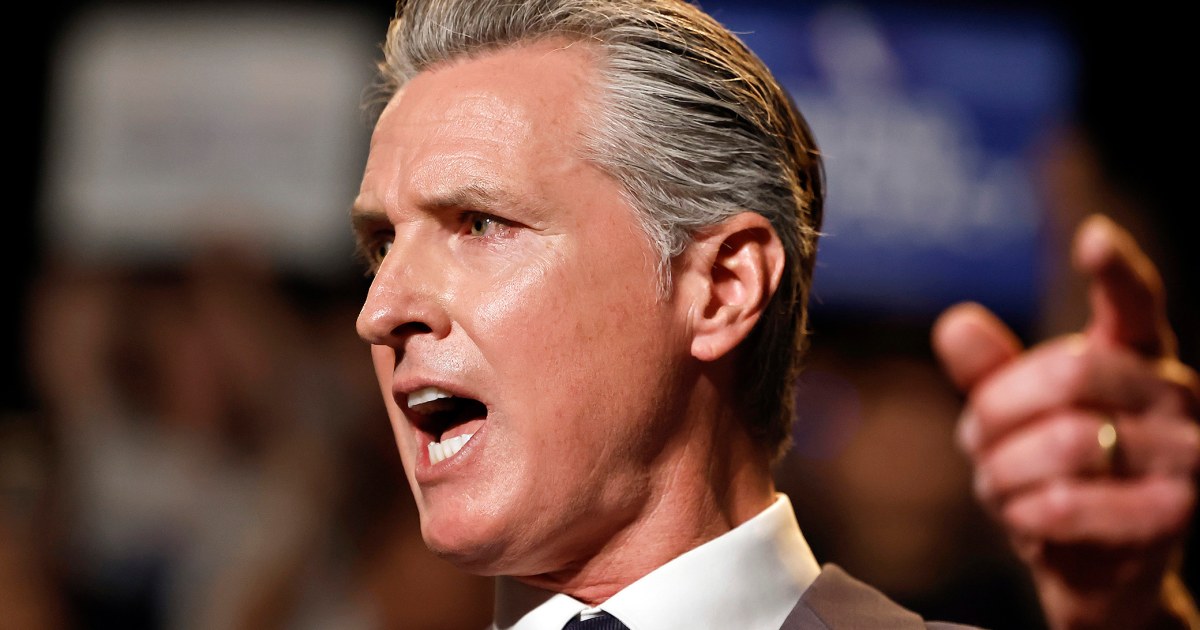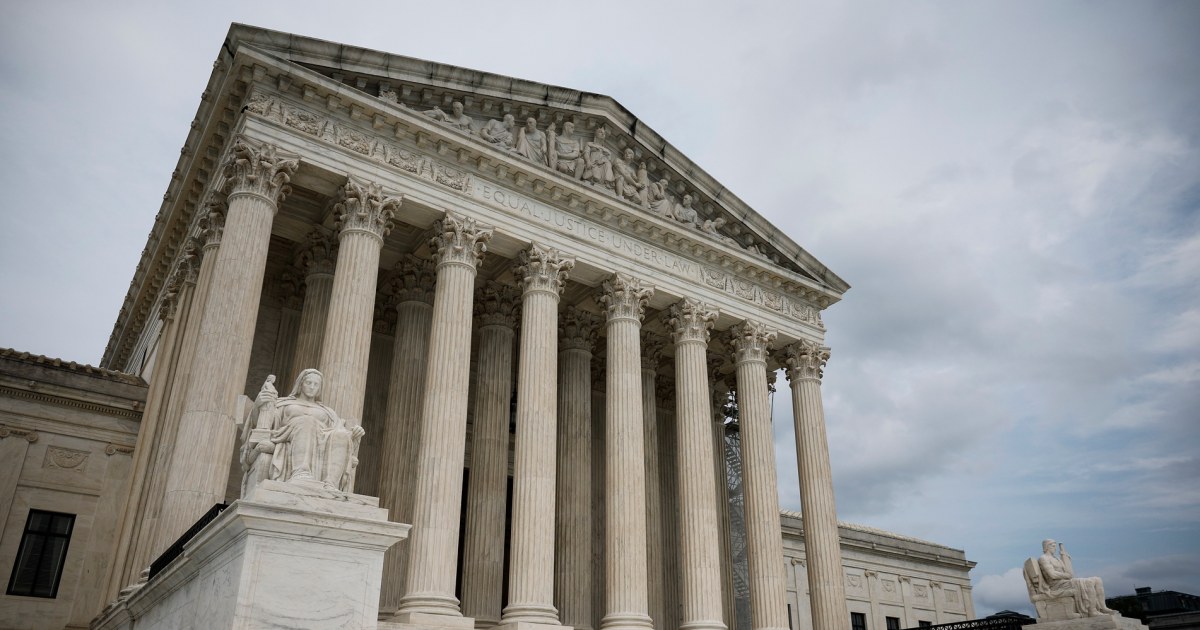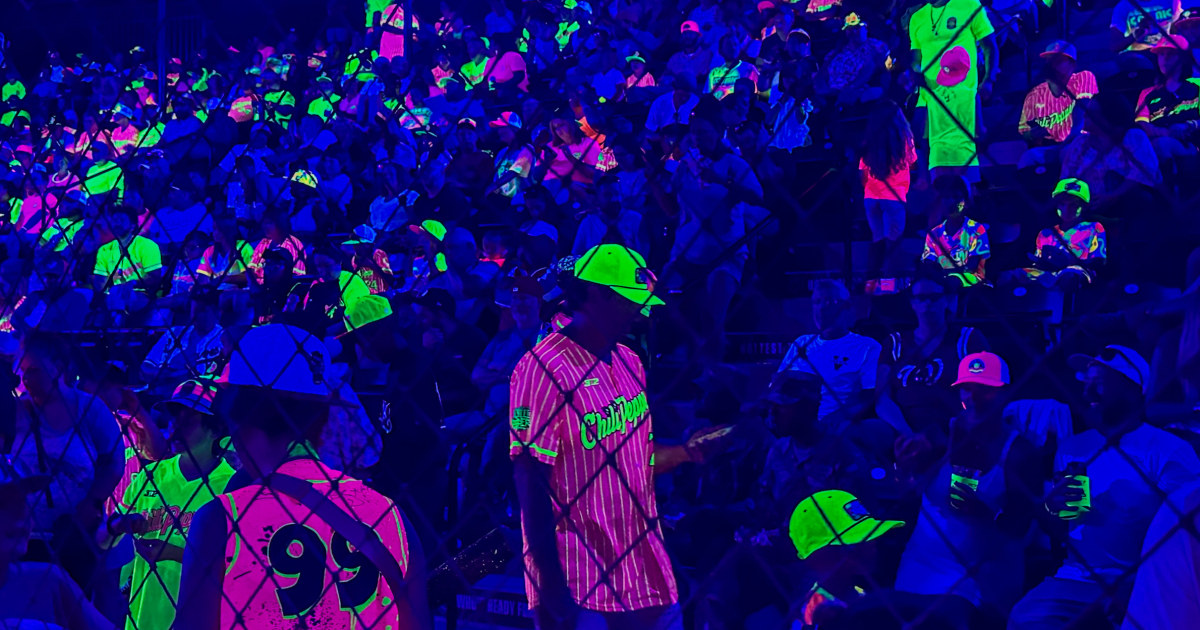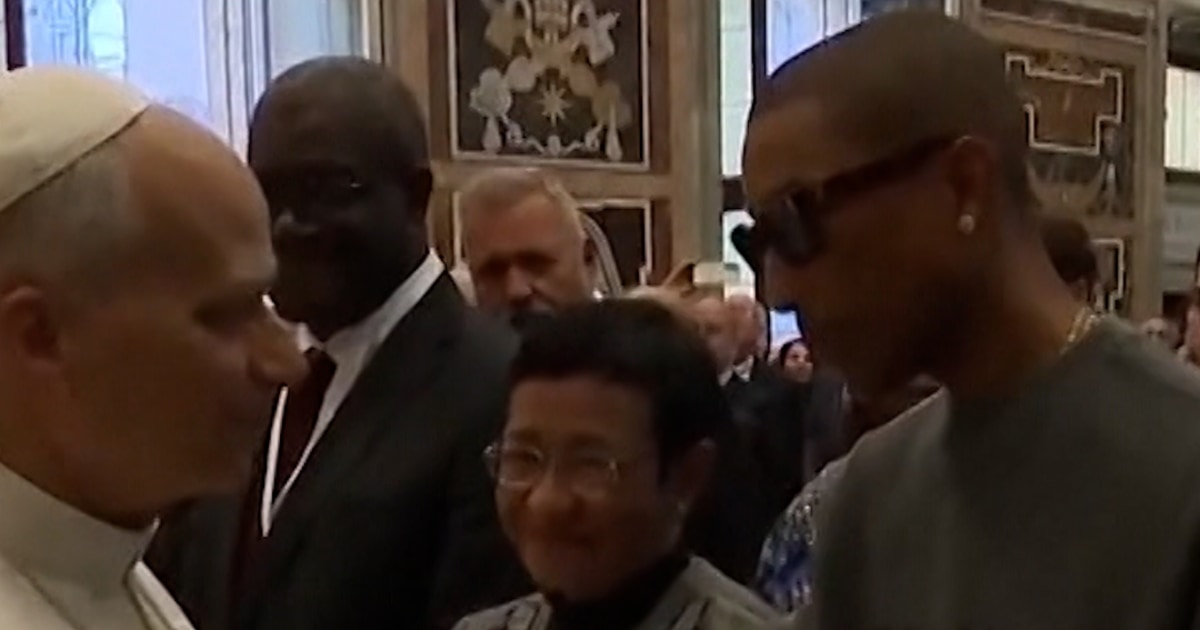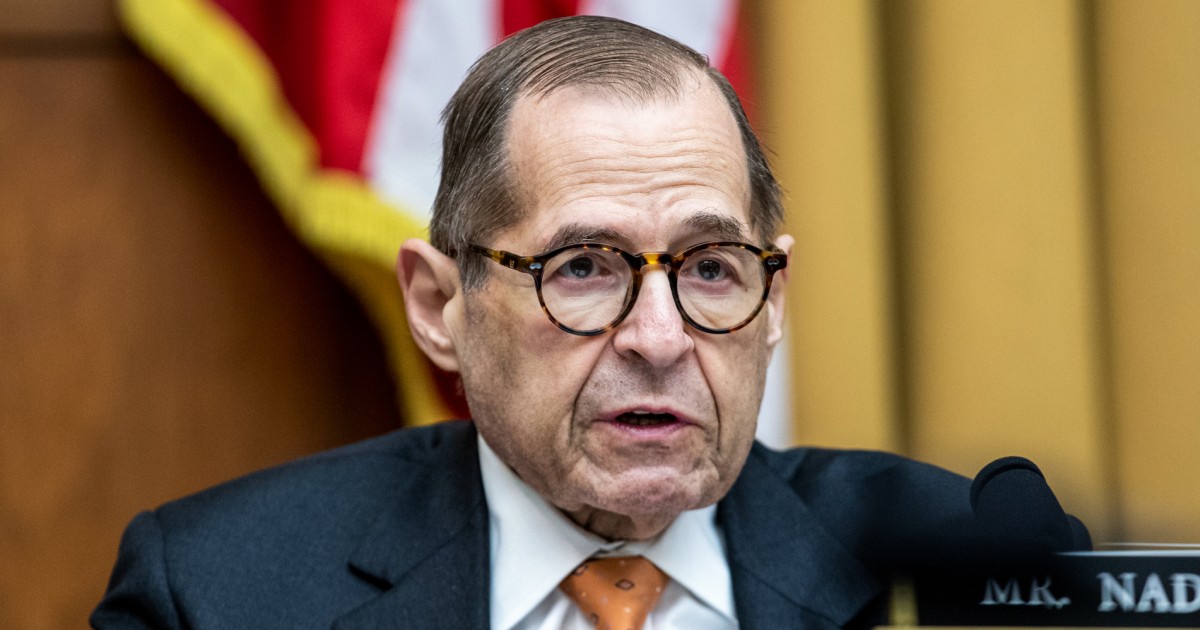Chinese chain Luckin Coffee opened its first two U.S. locations this week, betting that mobile-only ordering and creative flavors can lure customers away from Starbucks.
Both new Luckin stores are based in Manhattan, and at the midtown location on Wednesday, Sam Liu took a sip of her jasmine cold brew.
“I’ve never tried anything like it,” she said.
I thought I just order at the counter, but I realized everyone was standing around looking at their phone.
Luckin Customer Sam Liu, New York City
Liu said she’d hoped for more seating — the small shop has only three tables — and was initially confused by Luckin’s in-app ordering system, which means customers can’t order directly from a barista.
“I thought I just order at the counter, but I realized everyone was standing around looking at their phone,” Liu said.
Luckin is China’s largest coffee chain, with more than twice as many locations as Starbucks there. Its two New York City stores are its first foray outside Asia, where it has over 24,000 locations across the region. By comparison, there are over 17,000 Starbucks in the United States.
Its CEO, Guo Jinyi, called the U.S. “a strategically important market” for the company’s expansion in a press release heralding the two new locations Wednesday. “We are excited to introduce a diverse and unique coffee experience to American consumers.”
The company, which didn’t respond to a request for comment, has touted its ambitions to expand globally but hasn’t publicly detailed its next moves in the U.S. or other markets.
The chain has gained success overseas through creative drinks like alcohol-infused coffees and fruit lattes, along with its smartphone-centric ordering model. The app-based approach makes it easier to track inventory, send personalized appeals to consumers and serve drinks quickly, said John Zolidis, an analyst who tracks Luckin and Starbucks at the brokerage firm he founded, Quo Vadis Capital.
“Luckin was able to develop an incredible muscle with regard to product innovation, and they have been very creative in China,” he said.
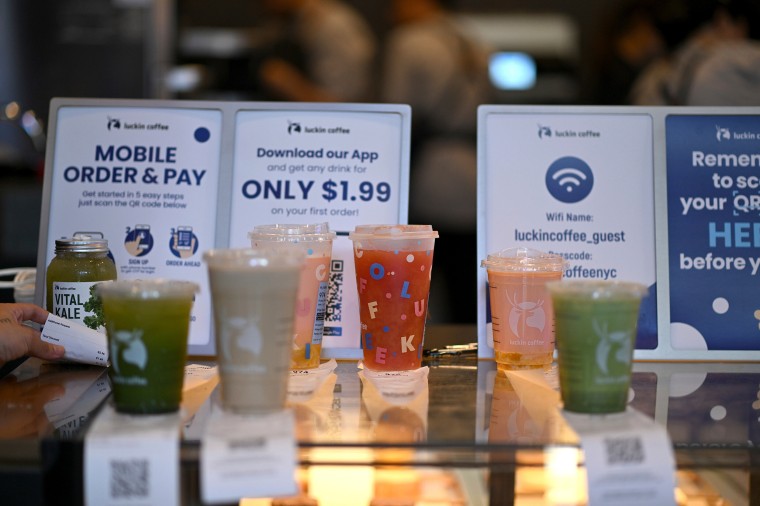
Zolidis said how Luckin fares on Starbucks’ home turf will depend on its ability to differentiate its menu from other major U.S. coffee chains and smaller, independent cafes. Its American lineup already includes distinctive drinks like blood orange cold brew and coconut lattes.
“These orange drinks, or one of their most successful, a coconut cloud latte — that’s how you get trial [customers] from the U.S.,” Zolidis said.
Luckin faced financial troubles during the pandemic. It was delisted from Nasdaq in 2020 after its stock plunged following an internal investigation that found an executive had falsified revenue reports. The company filed for bankruptcy in the U.S. the following year but emerged from proceedings in 2022 and its sales have soared since, reaching $4.7 billion worldwide in fiscal year 2024, a 38.4% increase from 2023.
Luckin was able to develop an incredible muscle with regard to product innovation, and they have been very creative in China.
John Zolidis, Founder, Quo Vadis Capital
Starbucks, by contrast, is struggling in both the U.S. and China. Its same-store sales in the U.S. declined 2% and its sales in China 8% in fiscal year 2024, and it reported in April that its quarterly profit was half of what it pulled in for the same period last year. The Seattle-based chain is reportedly looking to partially sell its business in China while revamping its U.S. strategy to focus on customer experience and human connection, in contrast with Luckin’s model.
“We veered away from, I think, owning the idea of the ‘third place,’ the coffeehouse experience, making sure that the customer was front and center,” Starbucks CEO Brian Niccol told NBC News in June.
A Starbucks spokesperson declined to comment.
Zolidis said that whereas Starbucks aims in both the U.S. and China to appeal to customers looking for higher-end coffee served in an inviting setting, Luckin has successfully positioned itself as the “everyman’s coffee” in China, with low prices and small, grab-and-go storefronts.
After taking the train in from Hoboken, New Jersey, to check out the new one in midtown, Samantha Coy said the trip was worth it. She had enjoyed Luckin in China previously and was eager to order one of its fruit drinks.
“I’m surprised Starbucks hasn’t tried to bring that over to the U.S.,” Coy said. “I hope they stay open.”
Zolidis said he thinks Luckin is well-positioned to gain a foothold in America.
“They’ve been able to operate and grow incredibly quickly in the Chinese market, much faster than I would have thought possible, and they’ve been able to sustain it and develop a strong financial model so they can fund their expansion in the U.S.,” Zolidis said. “They wouldn’t be coming here to try it if they didn’t think they had a shot of owning part of the market.”

